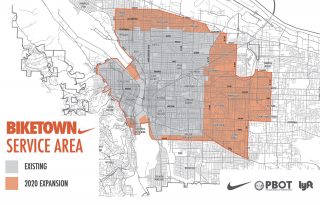
The Portland Bureau of Transportation has announced a $11.3 million, 5-year contract extension for the Biketown bike share system. The contract maintains partnerships with Lyft and founding sponsor Nike and will go in front of City Council for approval on July 22nd.
The contract means we can expect a major expansion that includes an all-new fleet of 1,500 pedal-assisted electric bikes with a top speed of 20-mph. The new system will go live in September with a service area that will include east Portland, the Jade District, portions of Lents, Gateway, and more. In total the orange Biketown vehicles will be accessible in 32 square miles of our city. PBOT says the fleet will expand to 2,500 bikes in 2021 and plans are in place for more expansions by 2024 that will boost the number of bikes to 3,000 and push the system even further into east and north Portland (including Kenton and St. Johns) as well as southwest Portland.
Advertisement
The design of the new bikes maintains the basic aesthetics of the current version. As you can see in the photo below, there’s a cool new front fender and all the essential urban bike features including a bell, front and rear lights, step-through frame, upright riding position, and a redesigned front cargo basket (with a 25-pound capacity).
Nike’s continued sponsorship is another sign that Biketown has been a success since it was launched in 2016.
“We believe Portlanders deserve access to affordable, active and sustainable transportation options,” said Nike’s Chief Social & Community Impact Officer Jorge Casimiro in a statement.
Today’s news is a welcome relief since we reported in May that contract negotiations had become tense.
The contract with Lyft (the company that owns Biketown’s operator Motivate, Inc.) keeps the system in the hands of the same operator as before which should make the transition to the new system much easier. On that note, PBOT says current Biketown members will be automatically rolled over in the new system.
Here are a few more details about the bikes and system released by PBOT today:
– Riding age will be lowered to 16 (down from 18).
– Bikes are pedal-assist, meaning you get a boost only when pedaling and there is no throttle.
– Membership fees are $99 per year plus 10-cents per minute*, or $1 per ride and 20-cents per minute.
– Low-income program is $5 per month plus 5-cents per minute.
– E-bikes are not allowed on transit vehicles
This is great news. Electric bikes are game-changers when it comes to urban transportation. They are the most efficient, convenient, fun and healthy way to transport people over trips up to 5-6 miles. Given that PBOT and Commissioner Chloe Eudaly are also poised for big progress on bike infrastructure-related policies and projects, this could be a major 1-2 punch for our transportation system at a time when we desperately need viable options to transit and driving cars.
Stay tuned for more coverage.
UPDATE 11:32 am: To clarify the new prices. Note that rates are going up. There’s no more “First 90 minutes free” for annual members. PBOT confirmed with us that all minutes will be charged at 10-cents per minute. Here’s statement from PBOT:
“The cost of operating an e-bike system is higher, but we think it will be worth it. These bikes will help more people reach more places, faster and easier. People who are new to biking will find themselves biking farther than they ever thought they would, and we think they’ll be inspired to explore biking further, by buying their own bike and growing their relationship with BIKETOWN.”
— Jonathan Maus: (503) 706-8804, @jonathan_maus on Twitter and jonathan@bikeportland.org
— Get our headlines delivered to your inbox.
— Support this independent community media outlet with a one-time contribution or monthly subscription.



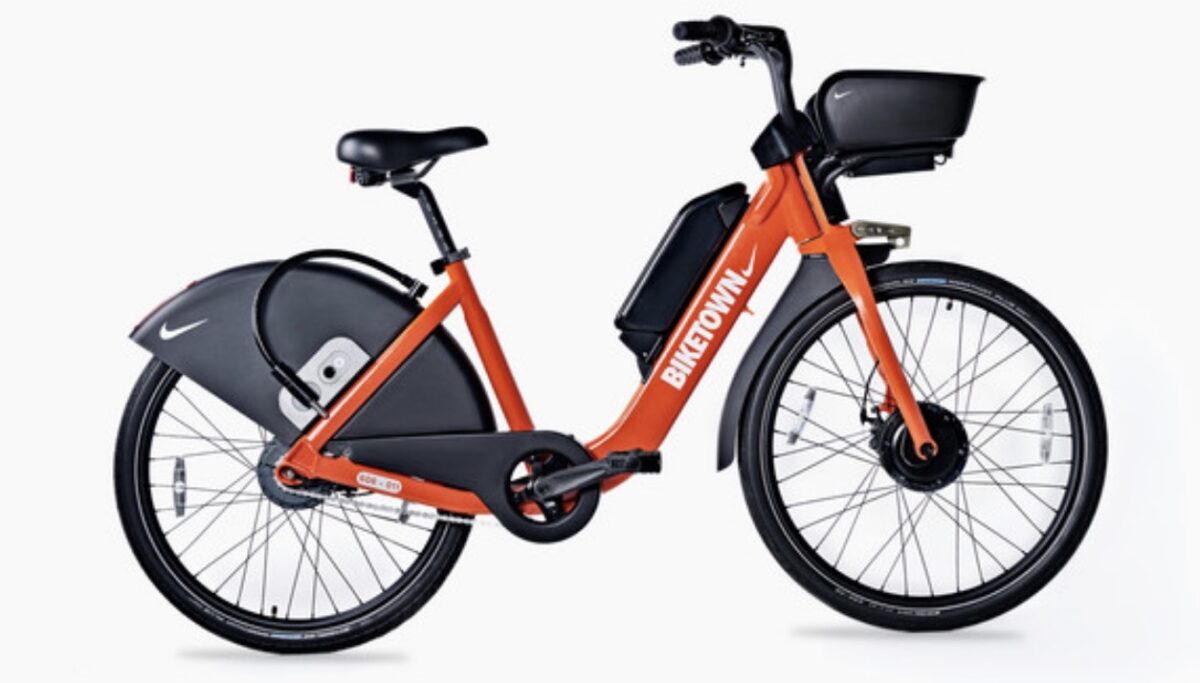
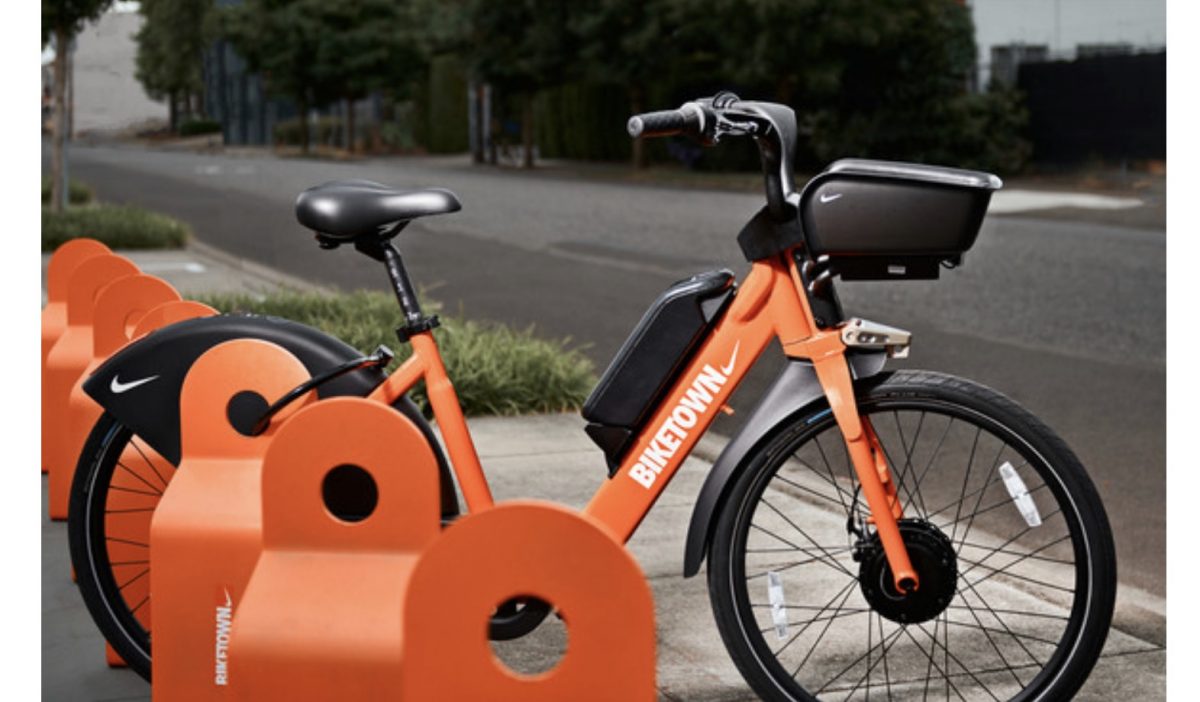
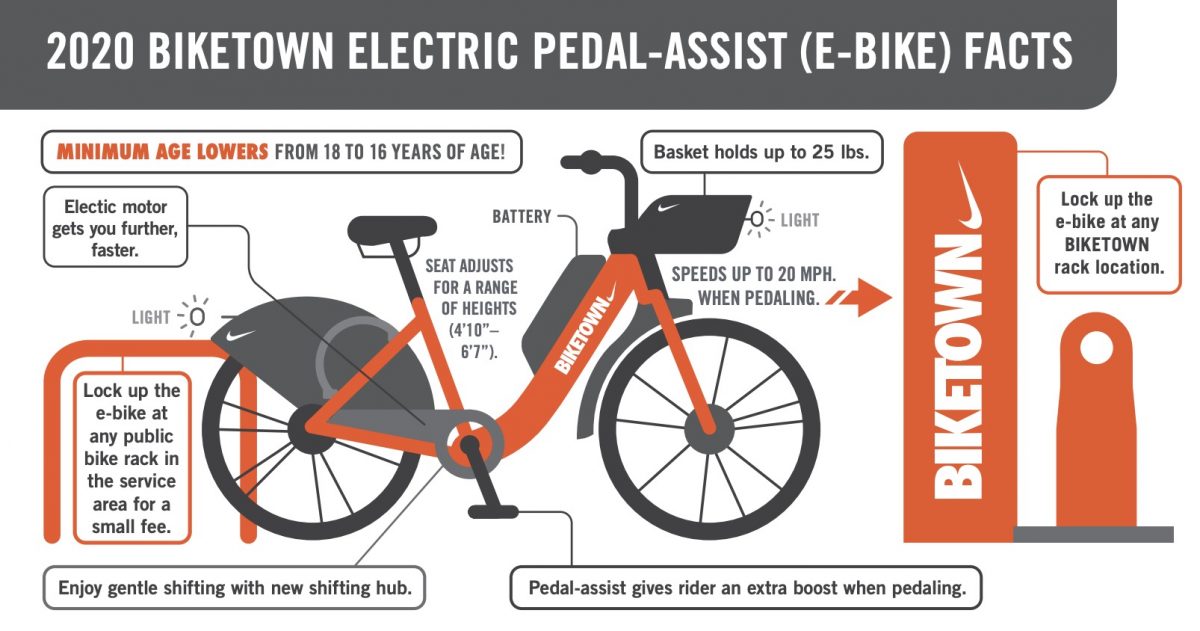
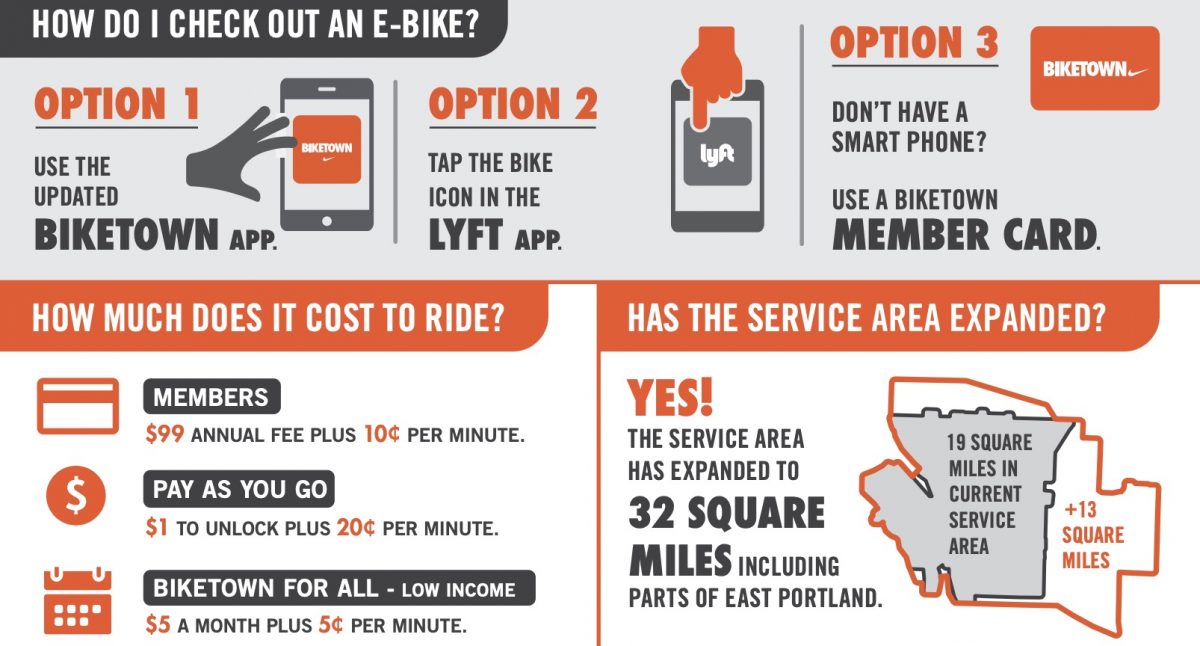

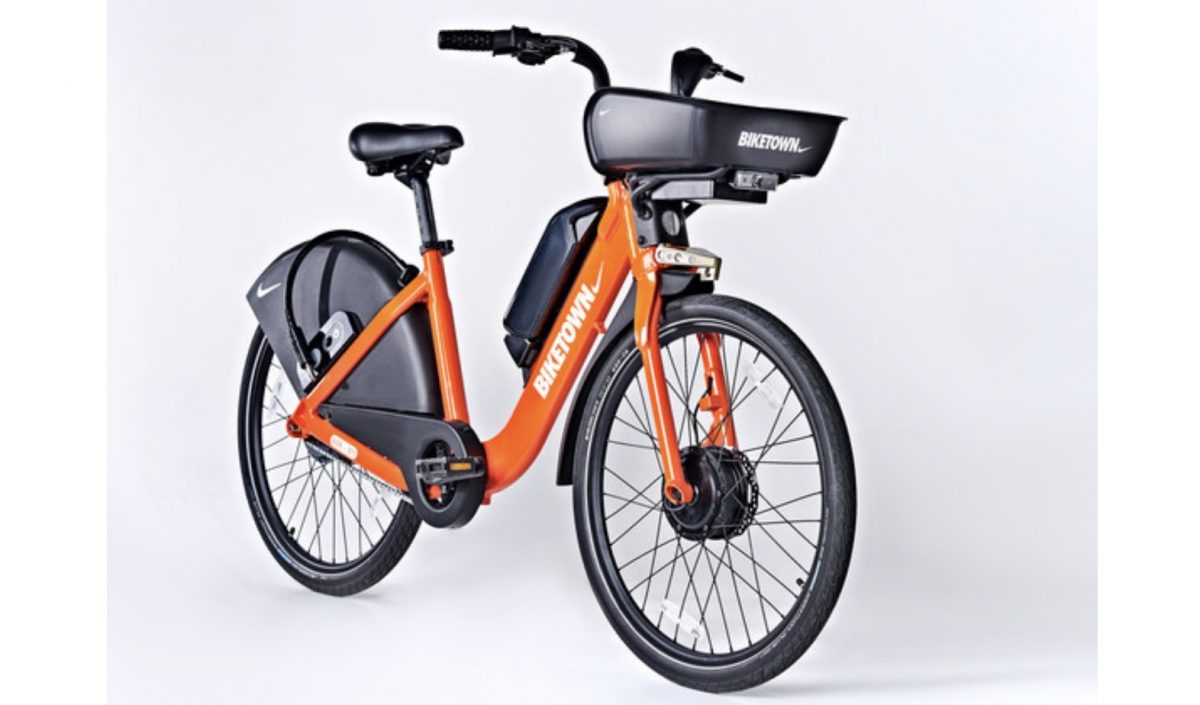
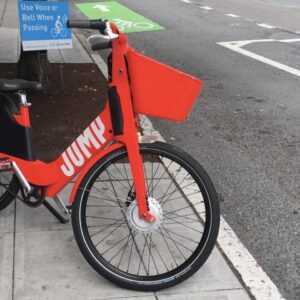

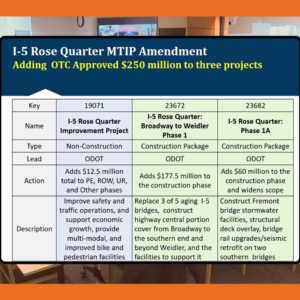
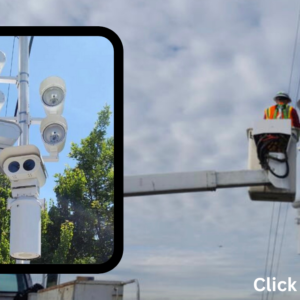
Thanks for reading.
BikePortland has served this community with independent community journalism since 2005. We rely on subscriptions from readers like you to survive. Your financial support is vital in keeping this valuable resource alive and well.
Please subscribe today to strengthen and expand our work.
This is going to be transformative. Tectonic even. Since getting a 20 MPH e-bike, I regularly make trips from Belmont to Alberta in less than 20 minutes without breaking a sweat. As far as ease of use goes, it’s honestly more like driving a car than riding a bike. Which is going to make people in hulking cars making the same trip look quite silly.
We can revisit your optimism in December 🙂
I hope this means they will be taking better care of the system and there will be less malfunctioning bikes.
Lyft has let the system fall into disrepair. There has been a bike in front of my place for 2 weeks with the flashing orange “in repair” light on. The app often shows bikes that are in repair as available to ride. I’ve had several issues when a bike is clearly locked up, but I get messages the next day that the bike is still checked out and I get charges.Takes days to clear up.
It’s a good thing they are expanding the map, but I am surprised Reed, Sellwood, and John’s Landing were not added. The most popular recreational ride is Esplanade to Sellwood bridge, but you can’t stop in Sellwood or John’s Landing to eat?
I also see that they are adding a per minute fee for even annual members? This is a major disincentive. Why not just raise the membership fee so people will not be discouraged to ride to avoid the per minute fee?
The article on OregonLive states the Annual plan 10-cents-per-minute fee only kicks in after 90 minutes.
But the graphic above doesn’t include that crucial nuance. Clarification is certainly needed.
Have confirmed. The O story was not correct.
PBOT says no more 90 minutes free for annual members. Here’s their statement:
At 10c per minute, a 25 minute ride will be equal in price to a transit ride (and transit does not require a $99 pass just to get on).
At 20c per minute, transit will be cheaper than a 13 minute ride.
Be sure to include time trying to figure out where the docking station is at your destination.
A 20 minute car trip will be cheaper than any of these options, if you already have a car (and depending on the parking situation).
So 99 dollars a year and I never have to wait up to an hour for a bus again I can just grab an ebike and get there faster for the same price. I’m sold.
Thank you for the followup
Unfortunately, Lyft’s business model in all realms has been built on per-minute charges, and this is no different. It’s a major bummer. It was nice to have 90 minutes per day because it made it a no-brainer to hop on a bike without having to calculate the cost in my head or feel like I had to rush. I wish they had at least dropped it to 15 or 30 minutes per day included. All that said, I think the annual membership will still be worth it for any kind of regular user.
The Oregonlive article states that members get 90 minutes per ride, the 10c per minute is only after that. It’s unfortunate PBOT’s graphic left that out!
I’ve asked for clarification on twitter, because there’s a discrepancy between the Oregonian story (which was obviously fed to the O by PBOT in advance) and the PBOT graphic.
The per-minute fee for annual members is a huge bummer. I will have to do the math based on my trips last year, but it may be more cost-effective for an occasional rider like me to step down to the pay per-ride level.
Now that the new bikes have chains, I think this will add to maintenance needs. Broken chains, rusty chains, oiling the chains, theft of chains, etc. The direct drive had the advantage of being lower maintenance.
I also wonder what the E-Bike does to my carbon footprint? I reduced 2,630 lbs of Carbon on Biketown the last 2 years. Does an E-bike cut that in half?
“I reduced 2,630 lbs of Carbon on Biketown the last 2 years.“
Hm. That is some fanciful feel-good math right there.
I wonder how this was done, what the assumptions are that yield this answer?
It is part of the BiketownPDX.com dashboard online. It’s a stat on there along with: Trips=2,175 Miles=3,002.0 $Saved=$1741.00 CaloriesBurned=120,080 CarbonReduced=2647 lbs
Not “fanciful” at all. Calc seems pretty accurate based on this article: https://bikeportland.org/2011/12/12/new-study-compares-bicyclings-co2-emissions-to-other-modes-63536
[3002(miles) x 1.6(km/mile) x 250(grams/mile)] / 454 (grams/lb) = 2644 lbs
that factor of 1.6 doesn’t need to be in there. your final unites are (lb km)/mi
Maybe Robert is British — they use a weird amalgam of imperial and metric units.
Whoever did the map knows nothing about neighborhood boundaries. Jade is covered, but that’s the only part of Powellhurst-Gilbert – the label was put inside of Hazelwood. Foster-Powell doesn’t go east of 82nd. And why call out that coverage doesn’t include Centennial, nor neighborhoods south of Holgate & Foster?
We just got the same bike in DC region and it works very well. The bike is very solid and the nuvicci/envolio shifting is silky smooth. Our top speed is 18 mph so neat that yours will do 20 mph. Cute that yours comes with our docking triangle piece on the front.
I would like to thank the VCs and other dumb money who are nobly funding the future of personal mobility while losing money hand over fist. I hope that Nike stays on board to pay the bills once Lyft loses its appetite to burn money on micromobility. Looking forward to doing silly things on Biketown ebikes!
“losing money hand over fist”….how do u figure?
If I see VC/PE signing a contract w/ any municipality, I’d wager the municipality is getting the short end of the deal…even if its just giving licensing rights away too cheaply…
Lyft / Uber have never made a profit…all those incentives for riders and drivers to use the service are paid for by early investors like VCs and various investment funds (thanks for all the rides home, Saudi sovereign wealth fund!). Micromobility is just another way for them to lose money in pursuit of share…because once you dominate all the money-losing businesses, you’ll magically start making money, right? (I’m being a bit snarky here, but there are definitely some excessively rose-colored glasses being used by rideshare investors.)
Petrodollars subsidizing bicycling?!?
To rephrase my response:
Do u REALLY think VC/early investors lost money like u suggest?
Or shud u really be thanking the mindless equity sheep for your cheap commutes? How much exposure to UBER/LYFT do u think OR PERS has, for example?
True true, I imagine investors in the earliest rounds did fine. Investors in subsequent rounds did not: https://www.cnbc.com/2019/09/03/softbank-more-than-600-million-underwater-on-uber.html
But will it feature a redesigned keypad?
It’s a completely different bike from a different vender. I think it’s the same type of bike used for Bay Wheels in San Francisco. They unlock with a QR code scanned on a phone. EDIT – the graphic above says that a member card can be used to unlock the bike for those without a smart phone… I’m not clear on how that would work.
I’m glad that the system boundary has been expanded east. Currently it ends just a block from me, so this makes it more likely for me to sign up. However, I wonder if 1500 bikes is enough for a 32 square mile service area? That’s only 46 bikes per square mile: if they put the designated parking areas in a grid, they will have to have them spaced about 1/3 to 12 mile apart on average to maintain a reasonable number of bikes per location. To have parking spots in a 1/4 mile grid (no more than a 5 minute walk from any location) they need to nearly double the number of bikes without expanding the service area.
In practice, I expect that the density of bikes will be sufficient near downtown and inner neighborhoods, but it may be too sparse east of 39th and north of Alberta.
It’s not nearly enough. Hopefully ridership is strong and they can add bikes.
It sure would have been nice if at any time during the process leading up to today’s announcement PBOT had consulted its own Bicycle Advisory Committee. A conversation about the fare structure and the service area would have been fruitful.
I’m pretty sure that legally while they were in contract negotiations no one was allowed to talk to anyone about it.
Even if that’s the case PBOT could have come to the committee (and the broader public) when they were crafting the RFP. They could have allowed a comment period after negotiations.
Not having any public involvement was a choice, and it’s one that completely contradicts the policies of our Comprehensive Plan.
I have similar questions, @maccoinnich. I’d like @PBOT to respond to this question. Anyone from @PBOT here to respond? Much appreciated!
Will the non-electric bikes be phased out? I would still prefer to use non-electric for most BikeTown trips.
Yes. The old bikes aren’t compatible with the new system and will likely be sold or scrapped. PBOT hasn’t said exactly what they’ll do with them.
Bummer… but worth it, I guess, if it shifts mode share away from cars and is unavoidable.
> The old bikes aren’t compatible with the new…
roads?
Unfortunately, Lyft has not made a classic, non-electric hybrid lock bike like Social Bicycle did and does not have plans to at this time. No one else has made a comparable product unfortunately. Smovengo in France has one where the cable lock comes out of the handlebars, the idea was to allow for double docking when a station was full, but few people do that and it likely would not work with Biketown’s docks.
Wouldn’t it be great if the community could buy the entire non-electric bike fleet and start a non-profit that could manage and operate a free non-electric alternative? It would be like yellow bikes of old mixed with a little red.
It would be even redder if it were managed by a worker’s collective.
Aye Comrade, and a five-year plan organized by our central committee.
And STILL nothing at all for the vast majority of Southwest, just like every other PBOT project. It’s like PBOT wants everyone there to drive alone to work every day: transit service so bad it might as well be nonexistant, no bike lanes to speak of, no sidewalks, no biketown…. The list goes on and on.
And SW only has 3 of the 5 city council members. It used to be 4.
This announcement could have been made 5 years ago and it would have been kinda okay. Why are we messing around with this private company running a system that doesn’t cover the entire city, let alone region. Imagine operating transit service this way (granted, trimet does play dress-up as a for-profit company.)
(US) Transit used to be funded and structured the same way: investors + fare box revenue + ‘special event excursions’ + real estate development (the latter was the key pre 1920). We will see how long it takes for shared micro mobility to fully morph into a truly public bike transit system. (There are + & – to this.)
Having said that, I will say that the private sector has been an important partner and investor to work out the technology, operations and fare structures (though often very wasteful and messy). Sadly, the US government only does this type of ‘DARPA like’ ‘kick-starter’ full from concept to market launch investment for: Space, Defense, FAA / Airports, and medical drugs.
All the transit systems in Britain are private except maybe the Tube (though the government owns all the roads and railroad tracks). While most of the transit systems in the US are municipal to some extent, about half are contracted out to private companies to operate, including Boston, much of the DC system, Charlotte, Atlanta, etc. Private companies have an easier time negotiating with unions than local governments do. The 5 main private contractors who account for around 80% of private transit contracts in the US are themselves more focused on public transit than most of their local government clients are, as all have a long successful history of providing public transport in their home countries (3 are French and 2 are British; none are actually American.)
Will stations incorporate charging plugs? It seems that parking off-station is allowed, for a fee, but since these are ebikes there wtll be a need for bike balancing. Is there a bonus for returning my y_do inbikes to a charging station?
I’m so excited to see this change. Now I just wish they would expand to St Johns. I’m curious about the analysis and metrics that draws the boundary line at Arbor Lodge. We experienced a similar thing with Car2Go at one time. Then they expanded into St Johns and published sexy marketing photos of the little smart cars coming across the St Johns Bridge…. and then they retracted their expansion area and eventually shut down. 🙁
I thought one of the important arguments for switching to e-bikes was so that the west hills would no longer be such a barrier. But the map shows no expansion into the hills.
Oh, and did anyone else that the NW border is shown as NE 82nd?
FYI – my annual membership was renewed last month. I rarely used the bikes as is, but it was nice to have and generally was able to get enough credits to offset. However, I have no interest in paying by the minute.
I just asked for a refund and they will give it to me.
“They are the most efficient, convenient, fun and healthy way to transport people over trips up to 5-6 miles.“
I’m afraid not.
most efficient = that would require skipping the electricity;
convenient = convenience is a social construct, so perhaps;
fun = energy slaves doing some of the work is always fun, until you have to pay the piper;
healthy = doubtful that an ebike is healthier than a regular bike, efforts to assert this notwithstanding. Please show your work.
And why stop at 5-6 miles?
That statement would fit better in a editorial stating that this blog is all in for e-bikes, and why.
Will people under the age of 21 be allowed to use these? That was a massive limitation in usefulness for my family.
People 16 or older will be allowed to use them.
That’s great. I’ve ridden Seattle’s shared ebikes and really enjoyed them especially on hills. I’m glad ebikes are coming to Portland. The expanded service area is also something I’ve been waiting for. However, I’m bummed that the regular bikes can’t coexist on the system. They know which bike is being rented so the old fee schedule should apply to those.
Are the new bikes going to be taxed at a per minute rate like e-scooters?
What about north Interstate av they never put any bike or electric scooter there so people don’t alway want to ride the max or bus